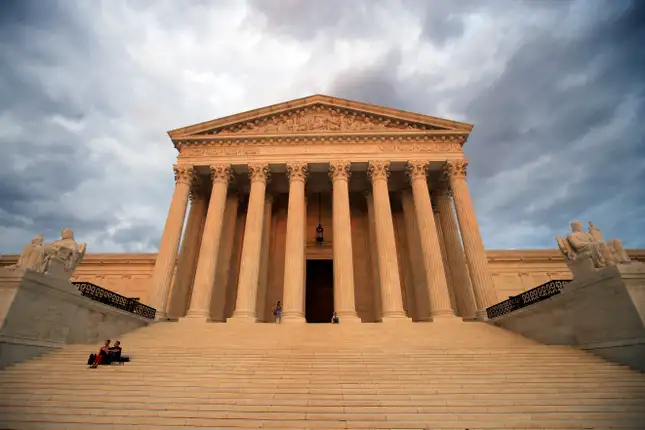“That seems problematic to say that the government can deprive you of your property, your money, substantial sums in a tribunal that is at least perceived as not being impartial,” Justice Brett Kavanaugh said.
Justice Department lawyer Brian Fletcher warned the justices that their decision could have effects reaching far beyond the SEC, noting that roughly two dozen agencies have similar enforcement schemes.
“I don’t want you to think it’s just about the SEC,” Fletcher said.
The case is just one of several this term in which conservative and business interests are urging the court to constrict federal regulators. The court’s six conservatives already have reined them in, including in May’s decision sharply limiting their ability to police water pollution in wetlands.
In the Jarkesy case, the Democratic administration is relying on a 50-year-old decision in which the court ruled that in-house proceedings did not violate the Constitution’s right to a jury trial in civil lawsuits.
But Chief Justice John Roberts, signaling his concerns with the power of federal regulators, noted that “the impact of governmental agencies on daily life today is enormously more significant than it was 50 years ago.”
The court’s three liberal justices seemed sympathetic to the Biden administration’s arguments. Justice Elena Kagan, responding to Roberts, said “our problems have only gotten more complicated and difficult.”
Later, Kagan said in-house enforcement actions have been close to routine for the past half-century. “Nobody has had the, you know, chutzpah, to quote my people,” said Kagan, who is Jewish.
Last year, a divided panel of the New Orleans-based 5th U.S. Circuit Court of Appeals ruled in favor of Jarkesy and his Patriot28 investment adviser group on three issues.
It found that the SEC’s case against him, resulting in a $300,000 civil fine and the repayment of $680,000 in allegedly ill-gotten gains, should have been heard in a federal court instead of before one of the SEC’s administrative law judges.
Although the Supreme Court basically dealt only with the federal court issue, the appellate panel also said Congress unconstitutionally granted the SEC “unfettered authority” to decide whether the case should be tried in a court of law or handled within the executive branch agency. And it said laws shielding the commission’s administrative law judges from being fired by the president are unconstitutional.
Judge Jennifer Walker Elrod wrote the appellate opinion, joined by Judge Andrew Oldham. Elrod was appointed by President George W. Bush, and Oldham by President Donald Trump. Bush and Trump are Republicans.
Judge Eugene Davis, a nominee of President Ronald Reagan, also a Republican, dissented.
Jarkesy’s lawyers noted that the SEC wins almost all the cases it brings in front of the administrative law judges but only about 60% of cases tried in federal court.
The SEC was awarded more than $5 billion in civil penalties in the 2023 government spending year that ended Sept. 30, the agency said in a news release. It was unclear how much of that money came through in-house proceedings or lawsuits in federal court.
A decision in SEC v. Jarkesy, 22-859, is expected by early summer.








